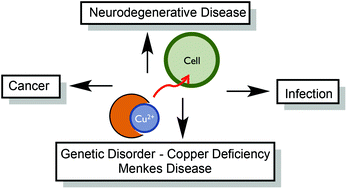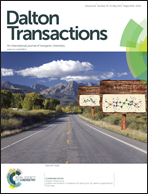Pharmacological activity of metal binding agents that alter copper bioavailability
Abstract
Iron, copper and zinc are required nutrients for many organisms but also potent toxins if misappropriated. An overload of any of these metals can be cytotoxic and ultimately lead to organ failure, whereas deficiencies can result in anemia, weakened immune system function, and other medical conditions. Cellular metal imbalances have been implicated in neurodegenerative diseases, cancer and infection. It is therefore critical for living organisms to maintain careful control of both the total levels and subcellular distributions of these metals to maintain healthy function. This perspective explores several strategies envisioned to alter the bioavailability of metal ions by using synthetic metal-binding agents targeted for diseases where misappropriated metal ions are suspected of exacerbating cellular damage. Specifically, we discuss chemical properties that influence the pharmacological outcome of a subset of metal-binding agents known as ionophores, and review several examples that have shown multiple pharmacological activities in metal-related diseases, with a specific focus on copper.


 Please wait while we load your content...
Please wait while we load your content...